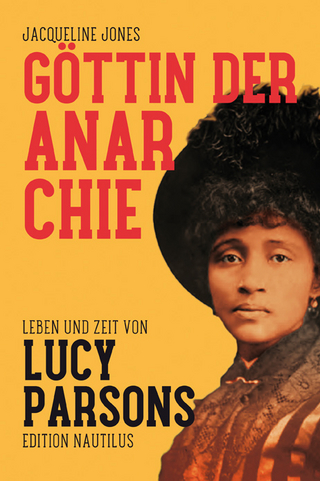
‘Labour Class’ Children’s Schooling in Urban India
Routledge (Verlag)
978-0-367-64750-6 (ISBN)
- Lieferbar (Termin unbekannt)
- Versandkostenfrei innerhalb Deutschlands
- Auch auf Rechnung
- Verfügbarkeit in der Filiale vor Ort prüfen
- Artikel merken
Drawing upon classroom ethnography and interviews with parents and pupils in urban central India, this book offers systematic sociological analyses of childhood, labour and schooling in postcolonial, post-liberalisation India. It combines insights from economic sociology, political economy and feminist critiques of capitalism, caste patriarchy and globalisation to theorise the relationship between educational experience and socioeconomic inequalities. It unpacks poverty as a structural condition shaped by class and caste relations, thus offering a vital intervention in dominant development discourses centring on the relationship between poverty and poor children’s schooling in the global South. Unravelling the interplay of poverty, caste patriarchy and shifts in the gendered division of reproductive labour, it challenges both the ‘girl effect’ narrative as well as the ‘school/labour’ binary. It offers insights into ‘labour class’ families’ experience of urban informal work, enabling a critical account of the gendered place of school in children’s lives and rendering visible poor parents’ and pupils’ efforts to ensure educational success. Thick descriptions of pedagogic and disciplinary processes and social relations in the classroom allow it to grapple with teachers’ ‘deficit view’ of the labour class as well as the impact of stratified schooling on teachers’ working conditions and teacher-pupil relations. The book presents a rare account of teenaged children’s gendered modes of negotiation of social relations at school and home, waged and unwaged work, economic and educational deprivation and pedagogic practices in the classroom. It will appeal to scholars interested in the sociology of education and childhood, gender and caste inequalities, international development, poverty and urban informal work.
Reva Yunus is Lecturer in Education and Social Justice in the Department of Education at the University of York, UK.
Dedication
Table of contents
Acknowledgments
Making a case for sociological accounts of childhood, labour and schooling
Theorising the link between educational and socioeconomic inequalities
Poverty and poor children’s schooling in development discourses
The ‘girl effect’
Informal work
A note on the term, ‘labour class’
Methods
Organisation of the book
Theorising intersections: poverty, patriarchy and urban children’s schooling in India
Socioeconomic and educational stratification and access to schooling
Stratification, participation and access
Decision-making within families
Classroom processes, experience and social relations
Teacher attitudes and discrimination
Welfare, poverty and social class difference
Theoretical framework
Childhood, the school/labour binary and political economy
Caste, class and informal work
Poverty, gendered work and social reproduction
Caste patriarchy and children’s lives
Contributions
Labour class students and their families: a look at urban lives and labours
Introduction
Migrating to Indore
Children migrating without parents
Labour class parents’ work
OBC families
SC families
Children’s gendered work
Boys’ work
Girls’ work
Conclusion
Ghar, bahar and the gendered place of school in children’s lives
Introduction
Ghar: Why school is dearer than home
(Un)freedom: village versus city
(Un)freedom: no bargains within patriarchy
(Un)freedom: when protecting becomes policing
Bahar: What could be more important than school?
The rewards of (waged) work
The reward is in recognition: jaan-pehchan
Conclusion: Gendered and classed significance of school
‘Sarkari skool’, ‘sarkari bacche’: unpacking the narrative of deficiency
Introduction
The ‘sarkari’ school
Overview of infrastructure, facilities and routine
What is ‘sarkari’ about the school?
Teachers’ ‘deficit view’ of labour class children
Differences between teachers’ practices
Challenging the deficit view
Labour class parents’ struggles and strategies
Labour class pupils’ struggles and efforts
Conclusion
The hidden moral curriculum for ‘labour class’ children
Introduction
Disciplining the welfare-dependent labour class
Keeping labour class children ‘clean’
Countering the narrative, cleaning the school
For the love of caste patriarchy: policing clothes, space and interaction
Constructing and negotiating labour class femininities
Policing techniques in the classroom
Negotiating gender policing
Conclusion
Schooling, social inequality and impossibilities of change
Children in families
Children in classrooms
Conclusion
References
Index
| Erscheinungsdatum | 05.11.2024 |
|---|---|
| Zusatzinfo | 3 Tables, black and white |
| Verlagsort | London |
| Sprache | englisch |
| Maße | 156 x 234 mm |
| Gewicht | 453 g |
| Themenwelt | Sozialwissenschaften ► Pädagogik |
| Sozialwissenschaften ► Soziologie ► Makrosoziologie | |
| ISBN-10 | 0-367-64750-8 / 0367647508 |
| ISBN-13 | 978-0-367-64750-6 / 9780367647506 |
| Zustand | Neuware |
| Haben Sie eine Frage zum Produkt? |
aus dem Bereich


